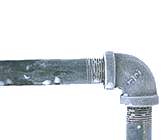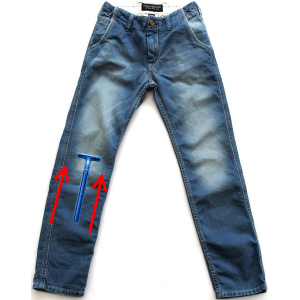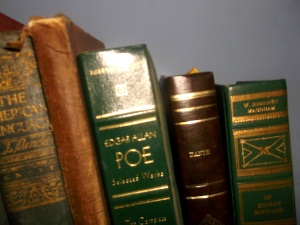
Anyone who lives in an area with cold winters is familiar with frozen pipes. Frozen water pipes are not only inconvenient, but they can also cause very expensive damage to your home. As water freezes, it expands. When your pipes freeze, the water inside expands, pushing on the sides of the pipes. If this happens, the sides of your pipes can bulge out and become weak or even burst.
It’s important to unfreeze water pipes as soon as you can. If you wait until later to do it or you wait and hope they’ll unfreeze on their own, you could end up with a huge mess and a great deal of damage on your hands.
If you need to unfreeze pipes, though, keep in mind that it’s not going to happen right away. It often takes a little bit of time for pipes to completely thaw.
Here are the steps you need to take in order to unfreeze water pipes and prevent the damage they can cause.
How to Unfreeze Water Pipes
1. Turn on your faucets all the way. This will help you determine when the pipes begin to thaw and move water through the pipes, which can help the frozen water thaw faster.
2. Find the areas of your pipes that are most likely to be frozen. In order to unfreeze pipes quickly, you must first find the area you need to concentrate on. Frozen pipes are generally located in areas that are the coldest, such as along exterior walls or where your water enters your home. You might also want to concentrate on areas that are especially drafty.
3. Apply heat to the frozen pipes. Use a hair dryer, small space heater, heating pad, or hot towels. You can also fill an old long sock with uncooked rice and seal it shut; heat it up in the microwave for a few seconds and place it on the frozen pipe. Be careful, though, because these get quite hot! Never use a torch or any other open flame to unfreeze water pipes. This is a fire hazard, and can actually damage some pipes.
4. Wait for your water to start running. Pipes will usually start to thaw gradually. When you unfreeze water pipes, you’ll most likely notice a slow trickle at first. Wait until both the cold water and the hot water begin to flow normally before you stop applying heat.
If you’re unable to unfreeze water pipes or you’re unable to access a frozen pipe, it’s best to call a plumber. The plumber’s fees will be much less than what it would cost to clean up water damage and fix busted pipes.
Prevent Frozen Water Pipes
If you don’t want to have to unfreeze water pipes, the best thing you can do is to take steps to prevent frozen water pipes in the first place.
First, pay attention to the weather reports. When the temperature is supposed to dip especially low, make sure you leave your hot and cold water running at just a trickle. Running water is much less likely to freeze.
If your pipes are located inside cabinets or underneath your sink, leave your cabinet doors open and your heater running. The open doors can let the war air circulate around the pipes and possibly prevent the water inside them from freezing.
Proper insulation is also a great way to ensure that you don’t have to unfreeze water pipes. Make sure that your water pipes are insulated from the cold. You may also want to consider investing in heat tape or pipe sleeves. Even newspaper wrapped around your pipes can provide some degree of insulation and is better than nothing.






